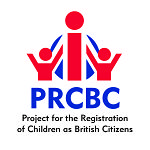Children’s British Citizenship: exposing the barriers to registration

Under current law, children may be recognized as British Citizens even where they fail to meet specific criteria, in recognition of the fundamental importance of children’s welfare. However, in practice, significant barriers to citizenship exist.
About the research
Many children are prevented from registering British citizenship, despite living nearly all their lives in the UK. The primary challenges to acquisition of citizenship are not found in the law as it exists in the books. The law currently gives the Home Secretary a discretionary power to grant citizenship to any child. Furthermore, both domestic and international law give strong protection for children’s rights, placing welfare and best interests at the heart of decisions concerning children. Instead, obstacles to citizenship for children are often practical and invite certain targeted interventions.
This research looks at the dissonance between the protection of children’s citizenship rights in law, and their ability to access these rights in practice. The research brings together perspectives of children who have experienced the process with views of practitioners and other stakeholders.
Three key intervention points emerged from this research. First, there is a lack of awareness surrounding the rignt to processes and benefits of acquiring citizenship for children. Second, the application fee and lack of available resources to fund applications are prohibitive. Third, children are often sidelined from citizenship processes – in contravention of legal standards – and their well-being and best interests are not properly considered.
Findings are drawn from interviews with immigration law practitioners, observations at children’s law clinics and a one-day stakeholder workshop held at the Paul Hamlyn Foundation in December 2015. This research is part of a broader project on the gatekeeping functions of British citizenship, and processes of inclusion and exclusion.
Recommendations
- Embassies, schools and colleges, and community organisations should provide training events and published information for both frontline professionals and the wider public, to raise awareness about registering for citizenship.
- There should be a duty on local authorities to consider registration of children in care.
- The Home Office should cease its profit-making from child citizenship application fees.
- Legal aid should be made available to advise and assist children in proceedings relating to UK nationality law.
- Although current UK policy makes some reference to the principle of ‘best interests’, further change is needed to fully embed the principle within the process.
- The application process should be more child-friendly and make better acknowledgement of the emotional and practical consequences for often already vulnerable children. This can be done if decisions clearly show that the best interests of the applicant have been a primary consideration.
- The policy on good character for children applying for registration as a British citizen should be reviewed.
- The current timeframe for decisions should be lowered (currently the average waiting time for an initial decision is at least 6 months).
- In the event of refusal of an application, proper and detailed reasons must be given.
Raising awareness of citizenship processes and benefits
Many children are unaware of their precarious immigration status until a trigger point is reached. Often this is as they approach their eighteenth birthday, apply for university, and discover they are unable to access student loans because they are not classified as ‘home students’. This scenario was dealt with in a recent Supreme Court case: Tigere [2015] UKSC 57 highlighted the plight of children who have lived nearly their whole lives in the UK, been through the British school system, but are then precluded from accessing higher education. Often their teachers, parents and social workers are unaware of the consequences of failing to register as British citizens.
This causes stress, embarrassment and shame among young people. They may be high achievers at school, but many are left bewildered and confused about their immigration status, with the anxiety of not knowing what their future holds. It is often left up to these young people to navigate between teachers, parents or carers, immigration authorities and lawyers, in the hope that they might be able to achieve a more secure status.
Awareness-raising about the importance of registering children should focus on local authorities, schools, colleges, community organizations and other frontline professionals working in this area. Particular emphasis should fall on providing information for children in local authority care and other hard-to-reach communities.
Prohibitive application fees
Awareness-raising is of limited utility without simultaneously tackling the prohibitive costs involved in citizenship applications and increasing provision of legal advice services for these children.
Applicants pay more than three times the actual cost of processing citizenship applications, with fees set to rise again soon.
The Home Office unit cost of processing a citizenship application is £272, while an application fee of £936 is charged. Unsuccessful applicants forfeit the fee. Most applications are unsuccessful in the first instance, making this a very high risk and expensive process. The Home Office should reduce the application fee to the level of the cost incurred to process the applications. There should also be the possibility of a fee waiver or reduction for those who have no possibility of finding the funds.
At the same time as being locked out by the high fee, quality legal advice is extremely hard to find and there are very few specialists in this area. Again, this raises the need to train up more lawyers and advisers to be competent in making children’s citizenship applications. Applications require a significant amount of time and effort. Pro bono service (free legal work provided by volunteers) should not be seen as a solution; instead legal aid should be allocated to advise and assist children in matters of nationality law.
‘Speaking of best interests seems to indicate I had a number of choices […].
No-one ever presented me with any choices at all.’
– A young person expressing frustration with the legal processes.
Empowering children and protecting child welfare
The final point of intervention relates to how children are treated throughout the process, and whether legal standards on child welfare are adhered to in nationality law practice.
In other areas of legal practice, notably family law, children are consulted, involved in decision-making processes, and their best interests given paramount importance. This follows obligations under the United Nations Convention on the Rights of the Child (CRC) and the domestic ‘every child matters’ framework. In nationality law the same obligations apply where decision-making concerns children (Section 55 of the Borders, Citizenship and Immigration Act 2009). However, in practice, children frequently find themselves sidelined from decision-making and voiceless throughout the citizenship process.
Moreover, any duty to act in the best interests of the child is submerged under concerns to control immigration and restrict citizenship. A key example of this is the use of the ‘good character’ requirement to refuse applications on the grounds of minor offenses committed.
The welfare and best interests of children should be placed at the heart of the application process. There should be a shift away from punitive refusals for minor offences, and the good character standard should differentiate between adults and children. Nationality law should look to other areas of law where children are better consulted and due regard is given to their long-term welfare and best interests.
‘Your parents know. But they don’t know the law’ – A young person referring to the difficulty of getting accurate information about British nationality.
‘You don’t feel different from your friends, but then there is this stigma or embarrassment you face […]. After you turn 18, it’s a whole new playing field in immigration law.’
Further information
To find out more about this research, including related publications, please visit the project website: www.bristol.ac.uk/law/research/centres-themes/citizenshipandlaw.html
You can also read the initial policy briefing here.
The Project for the Registration of Children as British Citizens (PRCBC) is the first and only organisation to focus directly on children and young adults and their right to British citizenship.
Authors
Dr Devyani Prabhat, University of Bristol
Ms Jessica Hambly, University of Bristol
Ms Solange Valdez, Project for the Registration of Children as British Citizens (PRCBC)
Policy Report 04: 2016
Children’s British Citizenship: exposing the barriers to registration (PDF, 201kB)
Until I found out about the Let us Learn campaign, I thought I was the only person who had this kind of problem. I was really relieved to meet others who’ve managed to sort out their situation and to be put in contact with a solicitor who could help me apply for British citizenship
Contact the researchers
Dr Devyani Prabhat, Principal Investigator:
Devyani.prabhat@bristol.ac.uk
Ms Jessica Hambly, Research Assistant:
Jessica.hambly@bristol.ac.uk
Ms Solange Valdez, Director and Lead Solicitor, PRCBC:
prcbc2013@aol.com

